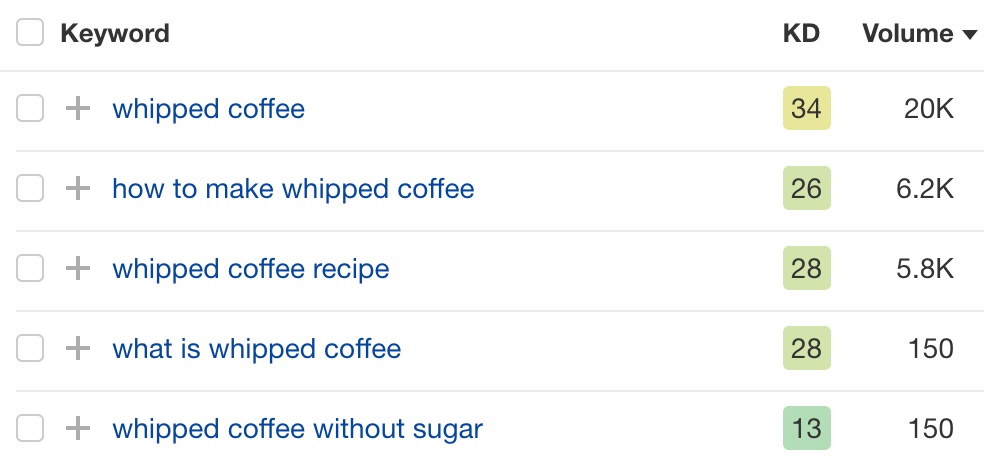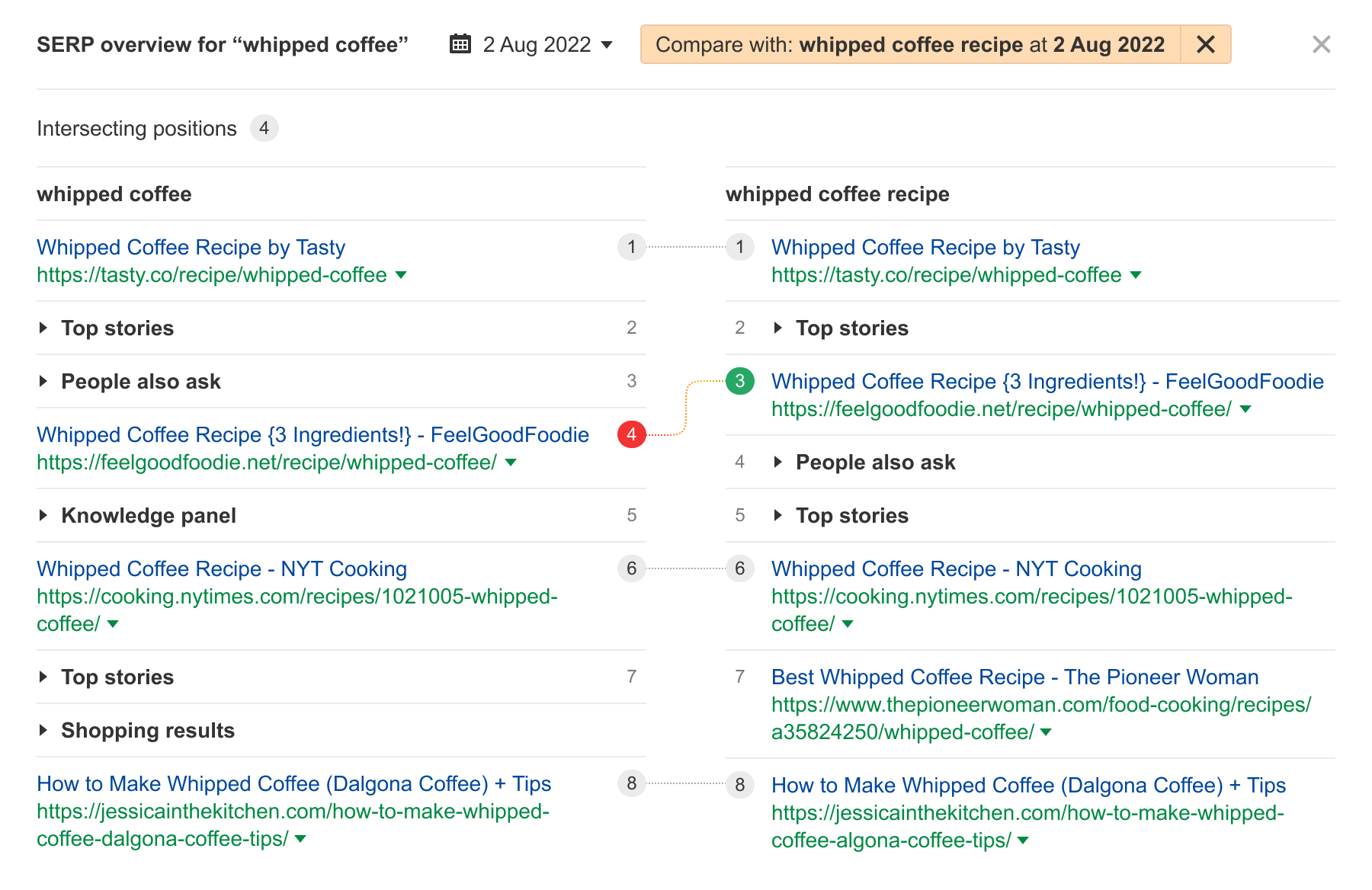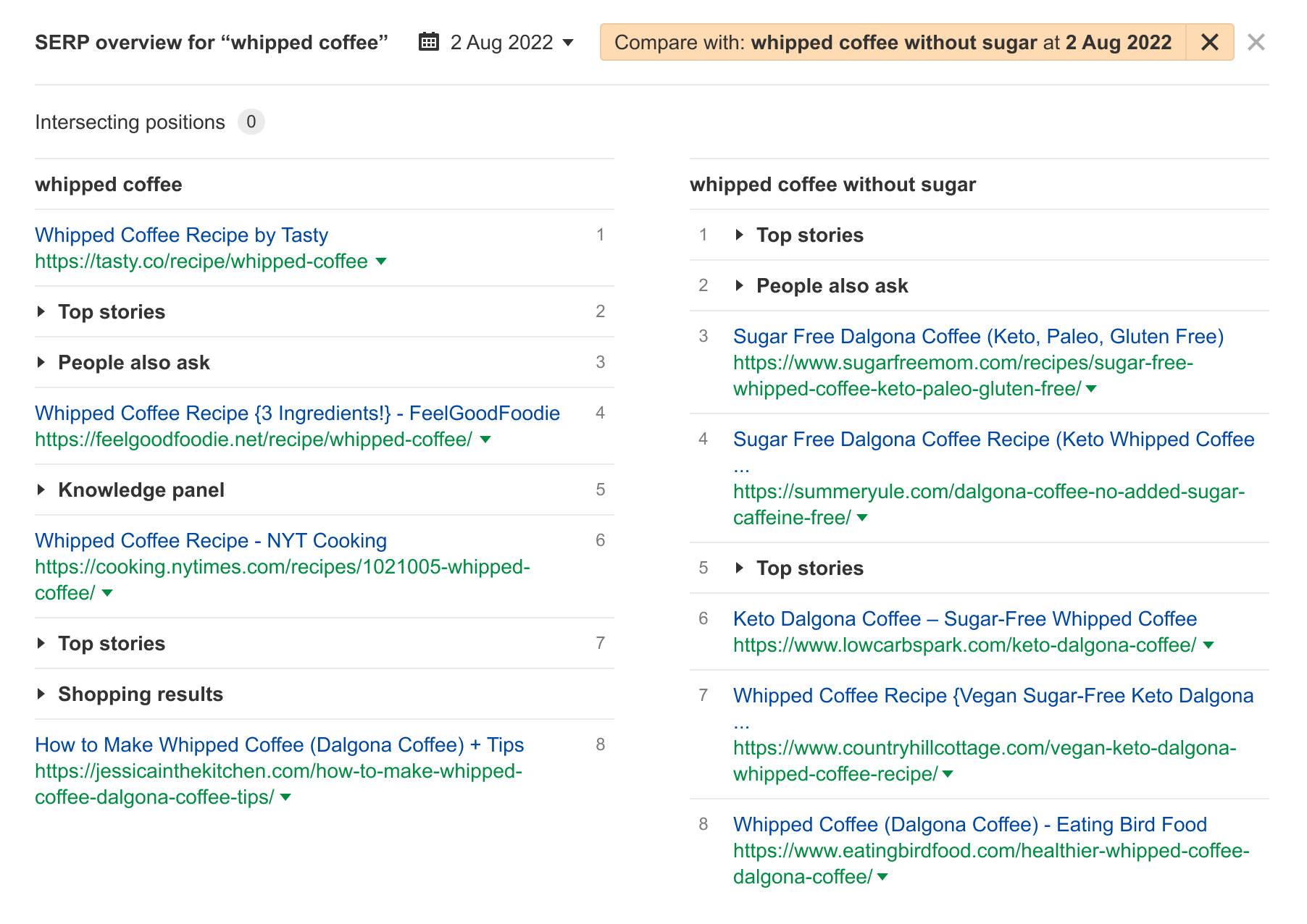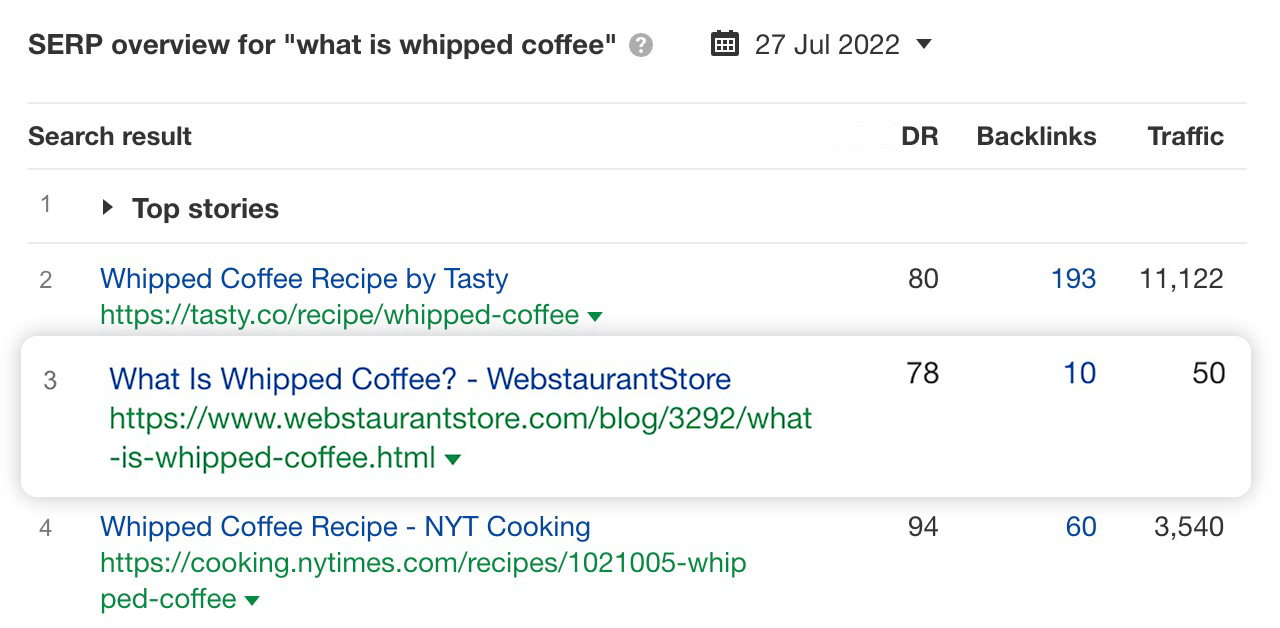Let’s say that you’ve got the following keywords on your list:

All of these search queries seem to be talking about the same topic: “whipped coffee.” But does that mean that a single page can rank well for all these keywords? Or perhaps you’ll need to create individual pages to target each of them separately?
The answer largely depends on how Google sees these keywords. Does it see them as part of the same topic? Or does it see them as individual topics?
You can get a sense of this by searching for each of these keywords one by one and comparing the search results. For example, let’s compare the search results for the keyword “whipped coffee” with those of the keyword “whipped coffee recipe”:

The top-ranking pages for both keywords are nearly identical. This means that Google sees the search query “whipped coffee recipe” as a subtopic of a more general query, “whipped coffee.” So you can rank for both keywords with a single page.
Now let’s compare the search results for “whipped coffee” with those of “whipped coffee without sugar”:

This time, there’s absolutely no crossover between the two SERPs. That means that “whipped coffee without sugar” isn’t part of a broader “whipped coffee” topic. Or at least Google doesn’t think so. Which means that you’ll need to create two separate pages if you want to target both of these keywords.
Comparing the search results for seemingly related keywords is a great way to understand how closely related they are and if you should target them with one page or multiple pages. But doing this for hundreds of keywords can be a rather daunting task.
That’s why we developed a handy feature in Keywords Explorer, which helps you to identify if a keyword you’re looking at is a part of a broader topic or, rather, deserves a dedicated page of its own.
We call it the Parent Topic.

The way we identify the Parent Topic of a keyword is very simple. We take the page that ranks #1 for that keyword and look up if there’s a more popular search query that it gets search traffic from.
So for the keyword “whipped coffee recipe,” we have identified that its top-ranking page is also ranking at the top for a more popular keyword, “whipped coffee.” Which isn’t the case for the keyword “whipped coffee without sugar.” It turned out to be a Parent Topic to itself.
The Parent Topic functionality is extremely helpful for grouping large lists of keywords into the so-called topical clusters. But we don’t recommend that you follow it blindly. And here’s why.
In the screenshot above, Keywords Explorer says that the search query “what is whipped coffee” is a subtopic of “whipped coffee.” Which means that you don’t need to create a dedicated page if you want to rank for it.
But let’s take a look at the top-ranking pages for the “what is whipped coffee” keyword:

Right at position #3, we see a page that is optimized precisely for targeting that specific search query “what is whipped coffee.” While the pages above and below it are actually targeting a more general term: “whipped coffee recipe.”
Thus, if you feel that a certain subtopic may actually deserve a dedicated page of its own, just take the risk and go for it! It may very well pay off.
Leave a Reply